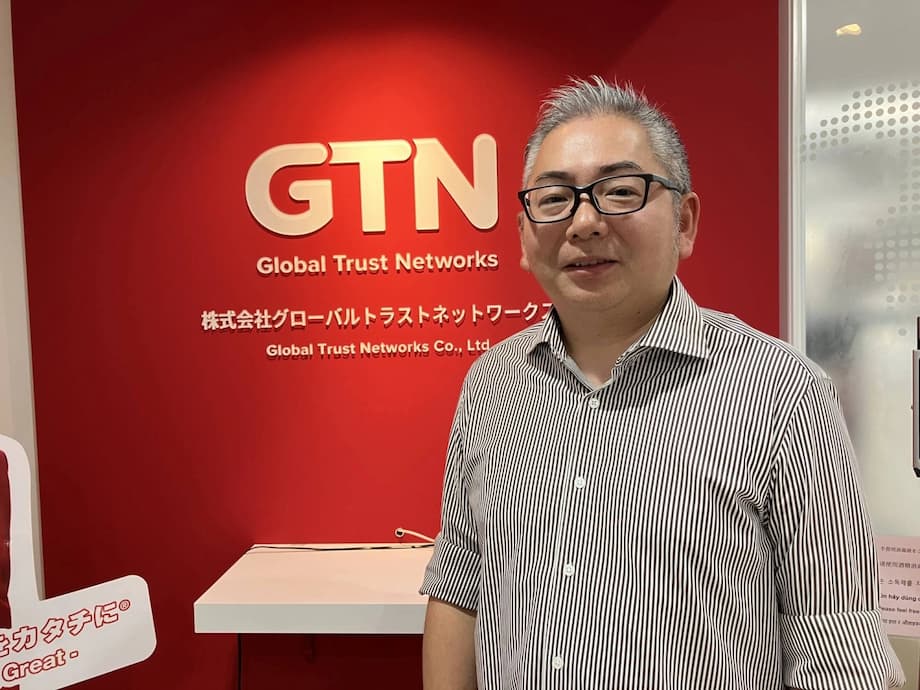Breaking Barriers: GTN’s Bold Move to Support Foreign Renters in Japan
In 2006, Hiroyuki Goto made a decision that many in Japan’s real estate industry considered reckless. At just 28 years old, he founded Global Trust Networks (GTN), a company dedicated to providing rent guarantees for foreign nationals—a group often sidelined by traditional Japanese rental practices. Goto’s vision was simple yet radical: make it possible for foreigners to rent homes in Japan without the usual hurdles of language barriers, lack of local contacts, and rigid guarantor requirements. Nearly two decades later, GTN’s gamble has not only paid off but has also transformed the landscape for international residents across Japan.
- Breaking Barriers: GTN’s Bold Move to Support Foreign Renters in Japan
- Why Is Renting So Difficult for Foreigners in Japan?
- GTN: Pioneering Rent Guarantees for Foreigners
- The Broader Landscape: Guarantor Companies and Legal Changes
- University Partnerships: Supporting International Students
- Industry Trends: Growing Demand and New Entrants
- GTN’s Legacy: Changing the Game for Foreign Residents
- In Summary
Why Is Renting So Difficult for Foreigners in Japan?
Japan’s rental market is notorious for its complexity, especially for non-Japanese residents. Unlike many countries where a security deposit or credit check suffices, Japanese landlords typically require a guarantor—someone who promises to pay if the tenant defaults. Traditionally, this was a role filled by a family member or employer, but for foreigners with limited local connections, finding a willing guarantor is often impossible.
On top of this, language barriers, unfamiliar paperwork, and cultural differences can make the process daunting. Many landlords are hesitant to rent to foreigners due to concerns about communication, payment reliability, and unfamiliarity with Japanese customs. As a result, even highly qualified international students and professionals can struggle to secure housing.
Understanding the Guarantor System
The Japanese rental system relies on two main types of guarantors:
- Joint Guarantors: Usually a family member or close acquaintance who is legally responsible for the tenant’s obligations, including unpaid rent and property damage.
- Guarantor Companies: Private firms that, for a fee, assume the role of guarantor, providing landlords with financial security and tenants with access to housing.
Since April 2020, legal reforms have capped the liability of joint guarantors, but the need for a guarantor remains a major hurdle for foreigners. This is where companies like GTN step in.
GTN: Pioneering Rent Guarantees for Foreigners
When Goto launched GTN, he faced skepticism from all sides. “Everyone around me strongly advised me not to do it and tried to stop me. They thought I was a bit crazy,” Goto recalled in an interview with The Japan Times. Yet, his own experiences as a foreign student abroad had shown him how critical housing support could be.
GTN’s business model was simple but innovative: act as a guarantor for foreign tenants, charging a fee in exchange for assuming the risk. The company also offered multilingual support, helping clients navigate contracts, set up utilities, and adjust to daily life in Japan. This holistic approach quickly set GTN apart from competitors.
Today, GTN is recognized as one of Japan’s leading guarantor companies for foreigners, working with universities, real estate agencies, and landlords nationwide. Its services are especially popular among international students and skilled workers, two groups that Japan is actively seeking to attract as part of broader immigration reforms.
How Does GTN’s Service Work?
GTN’s process is designed to be accessible and supportive:
- Application: Foreign tenants apply for GTN’s guarantor service when signing a lease.
- Screening: Applicants submit documents such as passports, residence cards, proof of income, and emergency contacts. GTN reviews these to assess risk.
- Contract: Once approved, GTN signs a contract with the tenant and landlord, guaranteeing payment of rent and other obligations.
- Ongoing Support: GTN provides multilingual assistance with daily life issues, from opening bank accounts to understanding local rules.
Fees typically range from 50% to 100% of one month’s rent as an initial payment, with annual renewal fees of 10,000 to 20,000 yen. While this adds to the cost of renting, for many foreigners, it is the only way to secure housing in Japan’s competitive market.
The Broader Landscape: Guarantor Companies and Legal Changes
GTN is not alone in this field. Other major players, such as Casa Inc., Japan Identification Co. (JID), Nihon Safety, and iSmile, also offer services tailored to foreigners. Recently, even financial giants like Credit Saison have entered the market, signaling growing demand and recognition of the challenges faced by international residents.
Legal reforms have also shaped the industry. In 2018, Japan clarified the distinction between regular and joint guarantors, making joint guarantors legally responsible for a tenant’s debts. This change, along with the 2020 cap on guarantor liability, has increased reliance on professional guarantor companies, especially among foreigners and freelancers who may not have local family or employer support.
Guarantor companies now play a crucial role in Japan’s rental ecosystem. They not only provide financial security for landlords but also help tenants by offering:
- Multilingual support (Japanese, English, Chinese, Korean, Vietnamese, and more)
- Guidance on contracts and local regulations
- Assistance with setting up utilities and daily life logistics
- Flexible screening criteria for non-Japanese applicants
Challenges and Criticisms
Despite their benefits, guarantor companies are not without controversy. Some tenants complain about high fees and strict screening processes. If a tenant falls behind on rent, the guarantor company pays the landlord but will aggressively pursue repayment from the tenant, potentially leading to legal action or credit issues.
For landlords, the system offers peace of mind, but some still hesitate to rent to foreigners due to lingering biases or concerns about communication. GTN and similar companies work to bridge this gap, but broader societal change is still needed to fully open Japan’s housing market to international residents.
University Partnerships: Supporting International Students
GTN’s impact is especially visible in the academic sector. Universities like Kyushu and Meiji have partnered with GTN to help international students find housing, set up utilities, and adapt to life in Japan. These partnerships are vital, as students often arrive with little knowledge of Japanese language or customs.
Kyushu University, for example, highlights GTN’s role in providing “multilingual support, guidance on signing contracts, and help with daily life issues such as opening a bank account, registering for a mobile phone, and understanding local rules.” The goal is to let students focus on their studies without being overwhelmed by administrative hurdles.
Meiji University’s student housing guide similarly emphasizes the importance of understanding rental contracts, key money (a non-refundable payment to landlords), and guarantor requirements. GTN’s services are recommended as a way to navigate these complexities and ensure a smooth transition to life in Japan.
Industry Trends: Growing Demand and New Entrants
Japan’s government has made attracting skilled foreign workers a key policy goal, recognizing the need to offset a shrinking population and labor force. As a result, demand for foreigner-friendly housing solutions is rising. The entry of major companies like Credit Saison into the rental guarantee market reflects this trend and suggests that competition—and innovation—will continue to grow.
According to Nikkei Asia, Credit Saison’s new service is expected to “arouse demand among students and workers from abroad,” further validating the market that GTN helped pioneer.
What Should Foreign Renters Know?
For foreigners considering a move to Japan, understanding the rental process is crucial. Here are some key points:
- Prepare Documents: Have your passport, residence card, proof of income, and emergency contacts ready.
- Budget for Fees: Expect to pay an initial guarantor fee (30%-100% of monthly rent), annual fees, and possibly renewal fees.
- Choose the Right Guarantor Company: Look for multilingual support and flexible screening criteria.
- Understand Your Contract: Know what the guarantor covers, your obligations, and what happens if you miss a payment.
- Seek Support: Many universities and real estate agencies partner with guarantor companies to help international residents.
GTN’s Legacy: Changing the Game for Foreign Residents
Hiroyuki Goto’s decision to bet on foreign renters was more than a business move—it was a challenge to the status quo. By addressing the unique needs of international residents, GTN has helped thousands of people find homes, build lives, and contribute to Japanese society. The company’s success has inspired others to follow suit, gradually making Japan’s rental market more inclusive and accessible.
As Japan continues to open its doors to the world, the role of guarantor companies like GTN will only grow in importance. Their work not only supports individual renters but also helps Japan compete in the global race for talent and innovation.
In Summary
- GTN was founded in 2006 by Hiroyuki Goto to help foreigners rent homes in Japan by acting as a guarantor.
- Japan’s rental system traditionally requires a guarantor, which is a major barrier for foreigners without local contacts.
- GTN and similar companies offer multilingual support, flexible screening, and ongoing assistance for international residents.
- Legal reforms and growing demand have made guarantor companies essential in Japan’s rental market, especially for students and skilled workers.
- Major firms like Credit Saison are entering the market, signaling increased competition and innovation.
- Foreign renters should prepare necessary documents, budget for fees, and seek support from universities or real estate agencies.
- GTN’s pioneering approach has made Japan’s housing market more accessible and inclusive for people from around the world.












